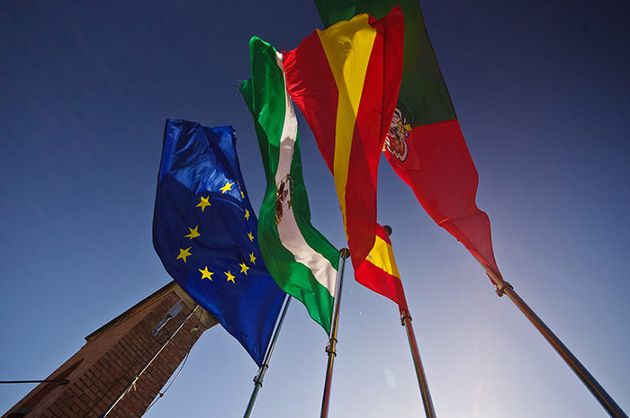Agora
Posts in Europe
 The EU, the troika inquiry and the big disconnect
The EU, the troika inquiry and the big disconnect
They came to praise the Greeks, not to bury them. “The path of economic and social recovery is long and arduous, and has exerted – and is continuing to exert – hard sacrifices,” said European Council President Herman Van Rompuy at the opening ceremony of the Greek presidency last week. “But we all pay tribute to the courage and fortitude of the men and women of Greece.”
Contributor: Nick Malkoutzis
Categories: Europe (282), Politics (387), Greece (498)
![Photo by Can Esenbel [http://www.mundanepleasure.com/] Photo by Can Esenbel [http://www.mundanepleasure.com/]](resources/toolip/img-thumb/2013/10/16/stocks2_economy_esenbel-large.jpg) The complexities of regaining market access: Could Greece learn from Portugal?
The complexities of regaining market access: Could Greece learn from Portugal?
Portugal is trying for the second time in three months to test its capacity to return to international bond markets. Seeking to regain full access to such debt markets is a central policy objective for the government of Prime Minister Pedro Passos Coelho. Greece, Portugal’s eurozone peer and fellow programme country in southeastern Europe, finds itself in a similar position.
Contributor: Jens Bastian
Categories: Europe (282), Economy (331), Greece (498)
![Photo by Myrto Papadopoulos [www.myrtopapadopoulos.com] Photo by Myrto Papadopoulos [www.myrtopapadopoulos.com]](resources/toolip/img-thumb/2014/01/05/cyprus_myrto_1000_0501-large.jpg) The Cyprus bailout is different, not only due to the bail-in
The Cyprus bailout is different, not only due to the bail-in
The Cyprus programme as agreed in March 2013 was different from the Greek and other eurozone bailouts in more ways than just the bail-in of uninsured depositors at the country’s two major banks.
Contributors: Alexander Apostolides, Charis Michalis
Categories: Europe (282), Economy (331)
 Most popular blog posts in The Agora during 2013
Most popular blog posts in The Agora during 2013
Here are our three most popular posts in The Agora section during 2013. For those who have already read them, a big thank you from the Macropolis team. For those reading them for the first time, we hope it gives you an idea of what we do.
Categories: Europe (282), Politics (387), Economy (331), Society (142), Greece (498)
![Illustration by Manos Symeonakis [http://www.cartoonmovement.com/p/6035] Illustration by Manos Symeonakis [http://www.cartoonmovement.com/p/6035]](resources/toolip/img-thumb/2013/12/23/euflagbank_agora_symeonakis-large.jpg) Europe missed an opportunity on banking union
Europe missed an opportunity on banking union
In June 2012, at the height of the debt crisis in the eurozone, its leaders decided to create a banking union. Their aim was, as the conclusions of that summit stated, to: “break the vicious circle between banks and sovereigns”. In this case, the sovereigns were members of the single currency whose economies were suffering.
Contributor: Kostas Karkagiannis
Categories: Europe (282), Economy (331)

